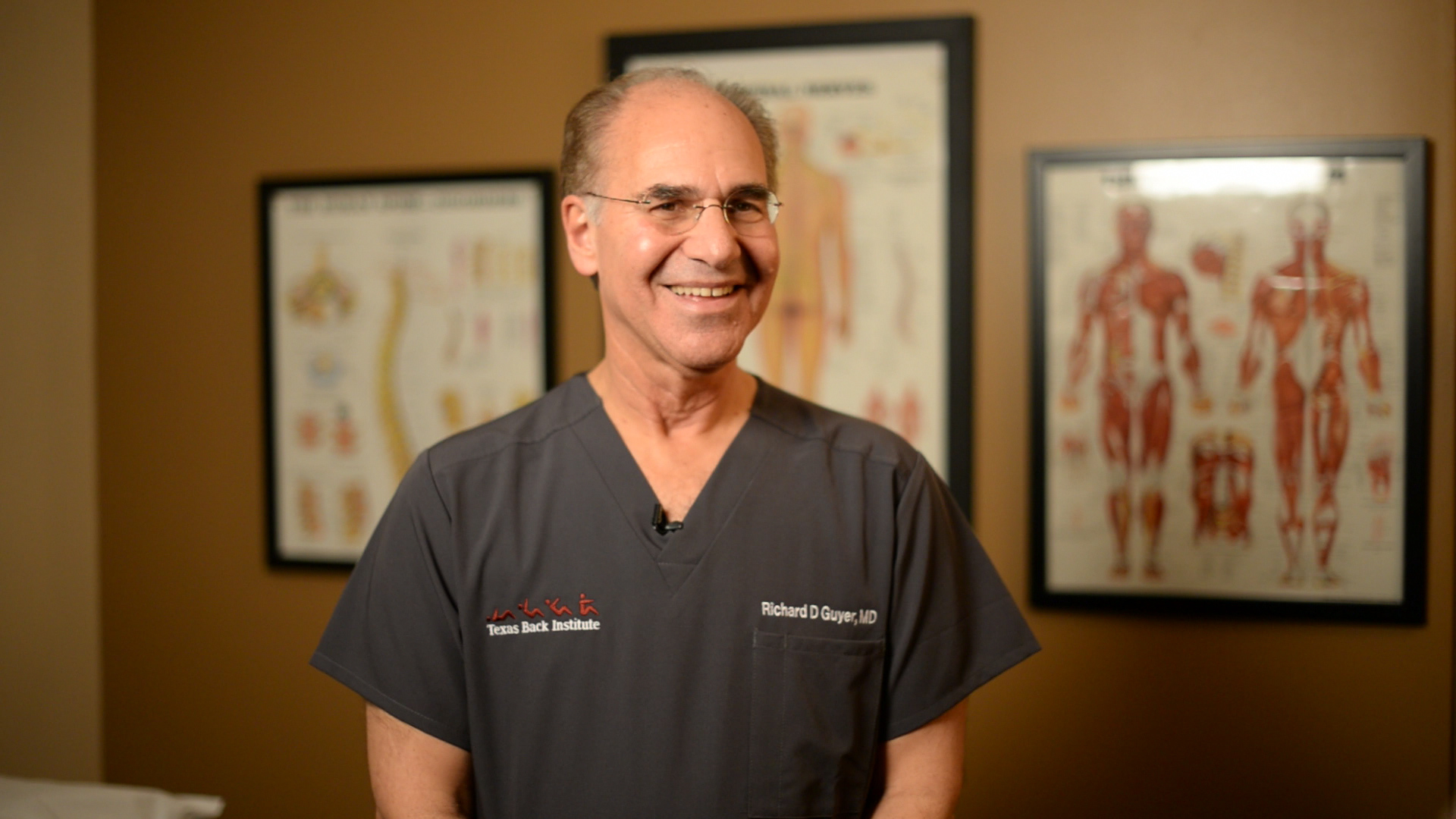Back and neck pain are a common cause of disability and discomfort which can restrict a person’s ability to perform daily activities. One cause of neck and back pain is damage to the discs in the spine that cushion and separate the vertebrae. These discs can degenerate due to various factors, such as age, genetics, or injury. The pain caused by damage to the spinal discs can range from mild tingling to intense stabbing, causing a major inconvenience in daily life. If you have been experiencing chronic back or neck pain, consult an experienced disc replacement surgeon to discuss possible treatment options such as disc replacement, also referred to as total disc replacement or disc arthroplasty. We sat down with Dr. Richard Guyer, an orthopedic spine surgeon specialized in artificial disc replacement and co-director of our Center for Disc Replacement to get answers to 3 commonly asked questions about artificial disc replacement surgery.

1. Who is a candidate for artificial disc replacement (ADR) surgery?
Conditions treated with artificial disc replacement include, herniated discs, chronic pain, and/or degenerative disc disease. I always tell my patients, when pain from these conditions becomes severe and non-surgical treatments are ineffective, that’s when it’s time to consult your doctor to see if you may be a candidate for surgical treatments such as disc replacement.
Patients with spondylolisthesis, osteoporosis, vertebral body fracture, allergy to the materials in the device, spinal tumor, spinal infection, morbid obesity, or those with significant changes of the facet joints may not be candidates for artificial disc replacement surgery.
2. What exactly is artificial disc replacement surgery?
Total disc replacement refers to a surgical method in which a spinal disc is removed and replaced with an artificial disc. This is a motion preserving procedure that is beneficial because by allowing the disc to move in a more natural way the chances of adjacent segment disease is reduced as it compares to fusion.
3. What is the difference between spinal fusion and disc replacement?
Spinal fusion is a method used to treat back pain by removing the damaged spinal disc and fusing the remaining vertebrae together to prevent movement. Artificial disc replacement is used to treat similar conditions, but instead of fusing the bones, a spine surgeon implants a prosthetic device between them to preserve movement in the spinal segment. The primary difference between the two surgical methods is that disc replacement allows the patient to maintain movement, while spinal fusion does not. Research shows that patients with an artificial disc are 1/3 less chance of developing adjacent spinal segment disease as compared to fusion patients. ADR patients typically stay in the hospital for a shorter period of time and can return to activity sooner than fusion patients as well.
Looking for a Center for Disc Replacement?
Treatment for an injured or damaged disc varies depending on the type of injury and severity of pain. Spine surgeons typically recommend a variety of non-surgical methods to treat spine related pain prior to suggesting surgery. These methods may include medication, injections and physical therapy. When conservative treatments fail to provide relief, that’s typically when artificial disc replacement surgery is recommended. If you are experiencing severe back pain and your physician recommends surgery, contact the Center for Disc Replacement at Texas Health Center for Diagnostics & Surgery in Plano to find out if you could be a candidate for artificial disc replacement surgery.
